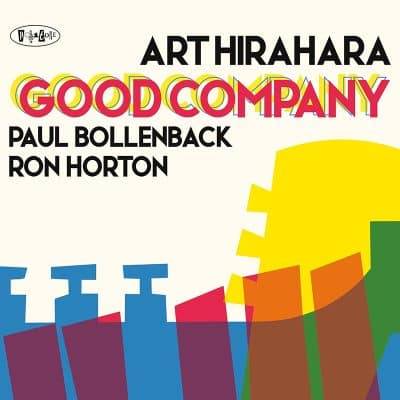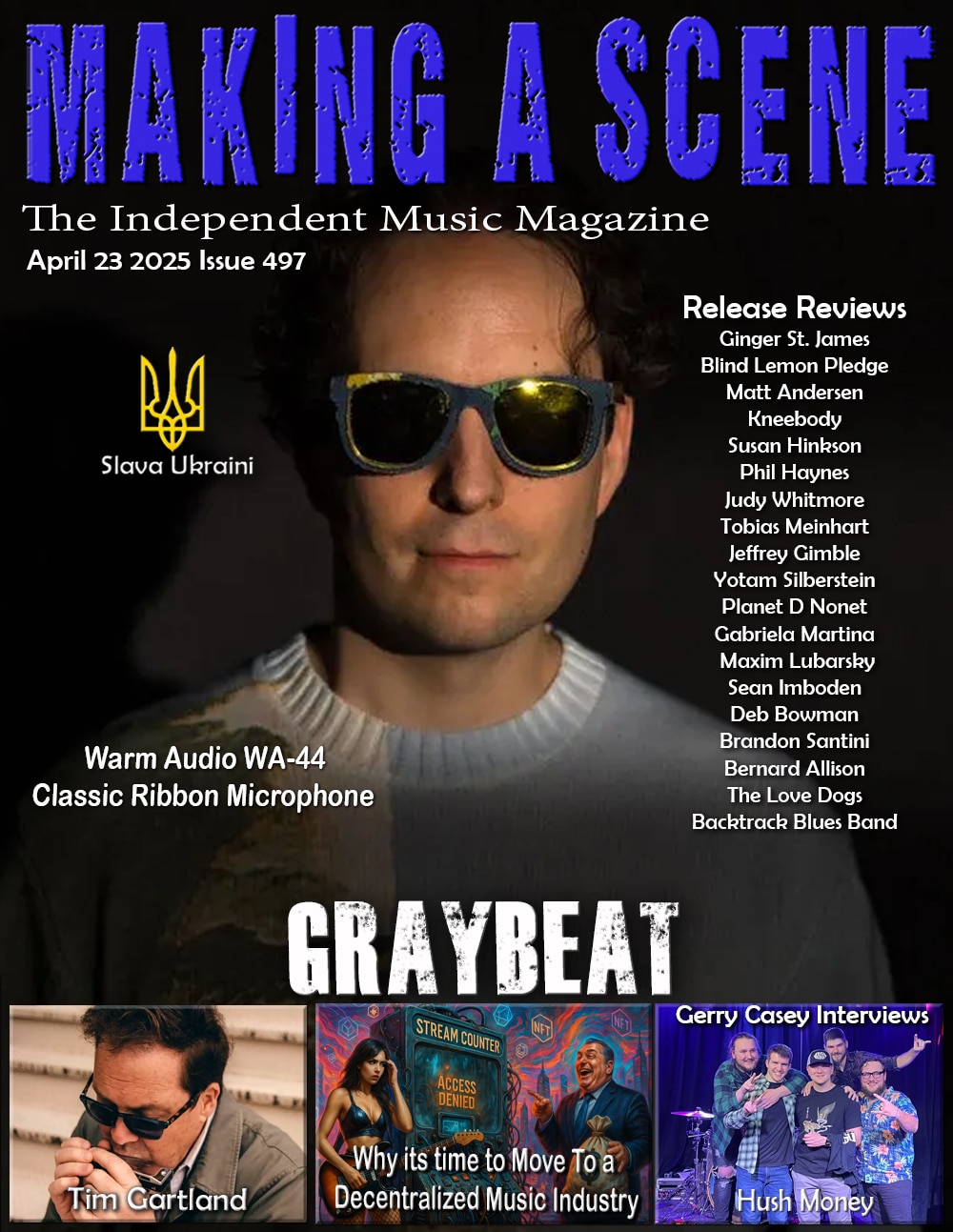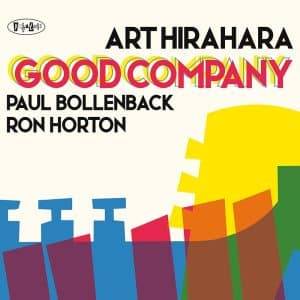Art Hirahara Good Company
 Art Hirahara
Art Hirahara
Good Company
Posi-Tone
Those of you who are fans of the Posi-Tone label certainly recognize pianist and composer Art Hirahara. In fact, you probably expect to see his usual label rhythm mates, Boris Kozlov and Rudy Royston. They are not here and instead we have a trio album with guitarist Paul Bollenbeck and trumpeter Ron Horton, an unusual configuration but one that works beautifully. You should know Bollenbeck as one of the most prolific jazz guitarists in the past couple of decades and Horton perhaps less so but his resume is equally impressive. He was a member of Jane Ira Bloom‘s band (1983-2000), has also been a member of the New York Jazz Composers Collective since 1992 and the Herbie Nichols Project under Frank Kimbrough and Ben Allison. From 1998 to 2003 he was also a member of Andrew Hill‘s sextet, and appeared on his album Dusk (1999) and this year’s archival A Beautiful Day Revisited (2006) where he was the musical director. As background, Hirahara and Bollenbeck decided to form this trio upon a fortuitous meeting in NYC’s Mezzrow where both were sidemen. When Hirahara was subsequently offered a trio date at the club, Bollenbeck suggested Horton and this trio was born.
There is a myth about piano and guitar, two chordal instruments, being conflicting rather than complementary yet there are hundreds of examples to defy such a notion and now we add one more. There are 13 composition here running for over and hour with Hirahara contributing four, Bollenbeck three, Horton three, with a cover each of Andrew Hill, Thelonious Monk, and Antonio Carlos Jobim.
Bollebeck’s “Shambolic” leads off, originally written to describe a situation when all was in shambles, it somehow took the path of a romantic tune, especially conveyed by Horton’s warm lines. The trumpeter’s association with Andrew Hill reveals itself in the angular “Laverne,” Hill’s composition for his first wife, written in 1974 and here a strong feature for all but especially Bollenbeck. Although this was long before Horton was playing with Hill. the trumpeter became familiar with Hill’s catalog during his tenure with the great progressive pianist and composer. Delving into a ballad, Hirahara rearranged Monk’s “Ugly Beauty” from its original 3/4 to 5/4, giving it an even more haunting quality in the melody, delivered primarily via Horton’s gorgeous flugelhorn. The third cover, Jobim’s “As Praias Descrias” is a rather obscure one, written in the late ‘50s before many of his more famous pieces.
Two of Horton’s compositions relate to a tour through Portugal several years ago, with “Sintra Breeze” capturing the joy and refreshment of an ocean breeze in a port city north of Lisbon while the tender “Full Moon Over Lisbon” is inspired bu the fullest moon he ever saw, as if resting on the shoulder’s of a castle’s gigantic towers. Horton’s elongated lines buffeted by delicate, graceful playing from the pianist and guitarist suggest the awe that Horton felt in that moment. Horton’s third piece is the warm closer, “Home,” conjuring the yearning of getting home while touring, a sentiment that almost every musician can relate to.
Besides the opener Bollenbeck also penned two. The prayer for peace in “Psalm” which showcases not only the nimble work of Hirahara and the writer, but the heartfelt passion inherent in their playing in the intro that sets the stage for a deeply lyrical Horton. His “Songline,” from one of his earlier albums, is a light swinger, a tribute to Aboriginal Australian oral storytelling no less.
Hirahara took two separate approaches, drawing from previous albums, and writing specifically for this trio. “The Shadowist” is from his terrific 2022 Posi-Tone’s Verdant Valley. The concept is from Italian Renaissance painter Caravaggio who casted his subjects dramatically in focused light and dark shadows. Each trio member offers both the light and dark in their rendering, which, of course, without bass and drums, remains mostly on the light side. His “SoHo Down,” drawn from 2023’s Idle Hands, a lighthearted play on ‘hoedown” or the concept of square dance. Listen closely though and you’ll ear the influence of Ornette Coleman in the writing. Hirahara’s “Drop and Drag,” written for this trio, also has a weird danceable quality while album standout “Everywhere, All At Once” is an example of these players improvising gleefully, without guardrails yet with the confidence that it fits with the whole.
Good Company is an apt title for three consummate professionals mixing a colorful palette with shifting tempos to keep the listener highly engaged.
– Jim Hynes
BUY NOW
Buy Us a Cup of Coffee!
Join the movement in supporting Making a Scene, the premier independent resource for both emerging musicians and the dedicated fans who champion them.
We showcase this vibrant community that celebrates the raw talent and creative spirit driving the music industry forward. From insightful articles and in-depth interviews to exclusive content and insider tips, Making a Scene empowers artists to thrive and fans to discover their next favorite sound.
Together, let’s amplify the voices of independent musicians and forge unforgettable connections through the power of music
Make a one-time donation
Make a monthly donation
Make a yearly donation
Buy us a cup of Coffee!
Or enter a custom amount
Your contribution is appreciated.
Your contribution is appreciated.
Your contribution is appreciated.
DonateDonate monthlyDonate yearlyYou can donate directly through Paypal!
Subscribe to Our Newsletter
Discover more from Making A Scene!
Subscribe to get the latest posts sent to your email.















































